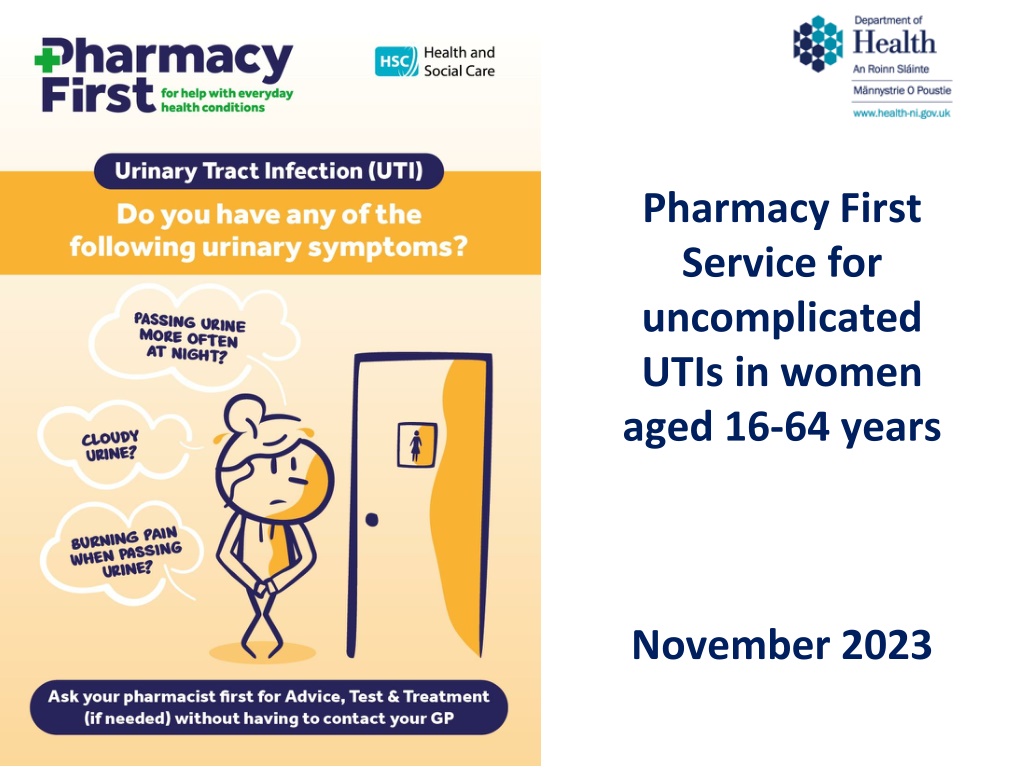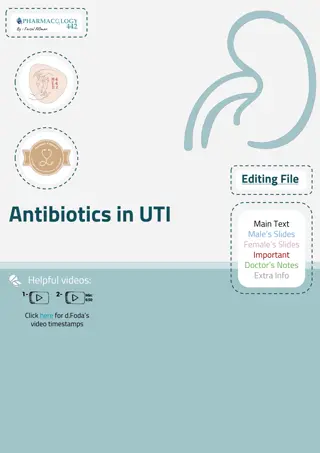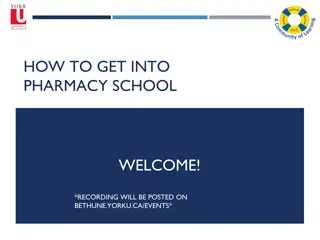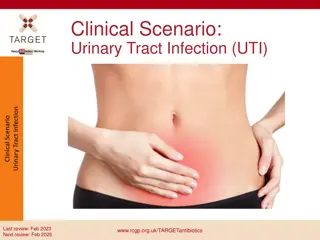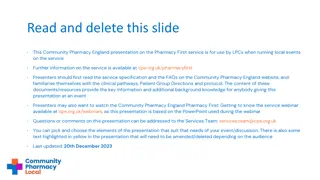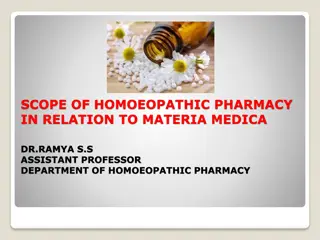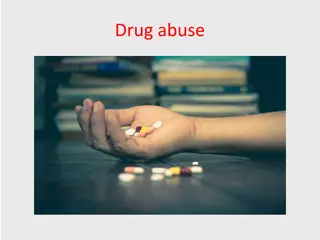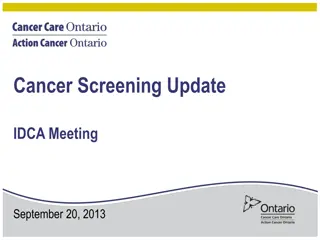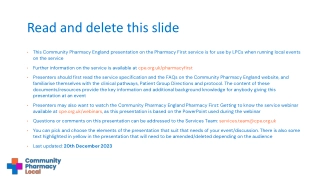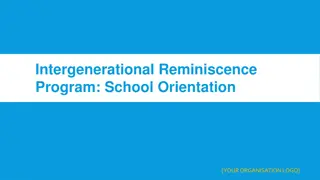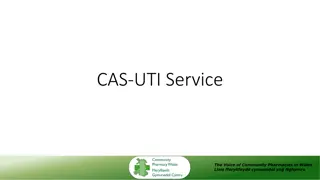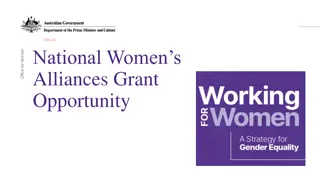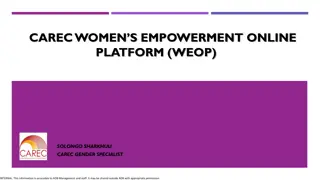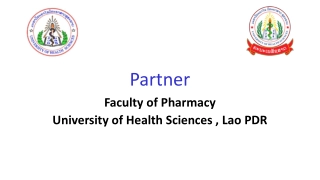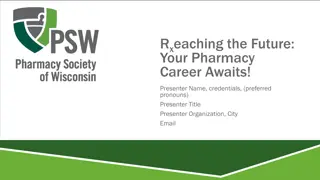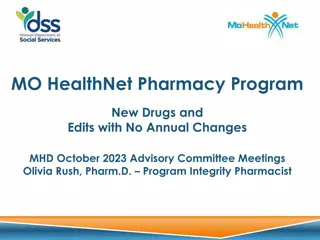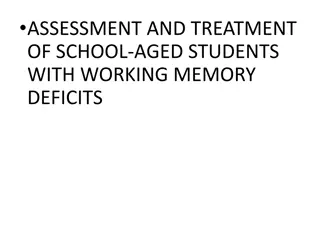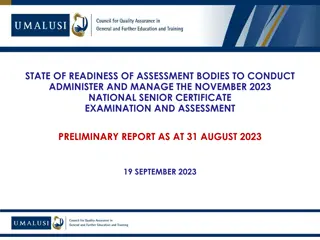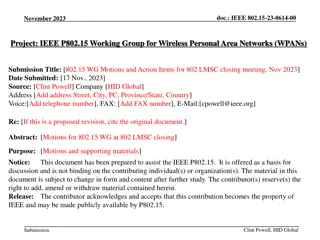Pharmacy First Service for Uncomplicated UTIs in Women Aged 16-64 - November 2023
This pharmacy service aims to assess and treat uncomplicated urinary tract infections (UTIs) in women aged 16-64 years in community pharmacies. The service follows guidelines to promote self-care, aims to displace GP activities, and utilizes clinical skills of pharmacists for timely and appropriate treatment. Patients can be referred through self-referral, pharmacist referral, or GP practice referral, with an emphasis on empowering patients to seek advice from pharmacists first. When eligible patients display UTI symptoms at a GP practice, they can be encouraged to consult a pharmacist directly for faster assessment and treatment.
Download Presentation
Please find below an Image/Link to download the presentation.
The content on the website is provided AS IS for your information and personal use only. It may not be sold, licensed, or shared on other websites without obtaining consent from the author. Download presentation by click this link. If you encounter any issues during the download, it is possible that the publisher has removed the file from their server.
Presentation Transcript
Pharmacy First Service for uncomplicated UTIs in women aged 16-64 years November 2023
Pharmacy First Service Uncomplicated UTIs The service will facilitate the assessment and treatment of women aged 16 - 64 years presenting with symptoms of LUTI in the community pharmacy in line with: NI Management of Infection Guidelines Public Health England Quick Reference Tool (endorsed by NICE to align with treatment guidance) Promoting self-care for all patients
Slides will cover: Overview of the service Referring eligible patients to the service Managing consultations that have taken place in community pharmacy Managing patients who the pharmacist needs to refer back to the GP practice
Service aims To displace activity including consultation, advice and treatment from GP practice to community pharmacy Provide a timely and appropriate service for women in the treatment of their condition and to identify patients who need onward referral to another healthcare professional To utilise the clinical skills of Independent Prescribing Pharmacists in community pharmacy To use diagnostic testing to help confirm diagnosis and aid prescribing decision 1. 2. 3. 4.
Referral to the service There are three ways patients can be referred into the service: Self referral Referral by a pharmacist / trained pharmacy staff Referral by GP practice or OOH medical centre 1. 2. 3.
Referring patients from GP practice When an eligible patient contacts the surgery displaying symptoms suggesting a Lower UTI, the receptionist may: Explain that they may obtain advice and treatment from a participating pharmacist without having to wait for an appointment with a doctor Ensure that the patient is aware that they have a choice Patients should be encouraged to phone the pharmacy first to arrange a consultation and bring a sample of urine
Referring patients from GP practice contd For all patients: Patients will be offered a consultation with the pharmacist in person (or in exceptional circumstancesonly by video or phone) Patients may receive advice only, or advice and treatment after appropriate assessment by the pharmacist. If a patient chooses not to take advantage of the Service then an appointment with the GP practice should be made in the normal way.
Service flow chart
Service flow chart
Consultation in the pharmacy Diagnosis: The pharmacist makes a clinical diagnosis based on: Patients symptoms Results of a urine dipstick test (if required to confirm diagnosis) Advice: All patients will be offered: Verbal advice on symptom duration and safety-netting Written advice e.g. TARGET UTI patient information leaflet Advice on self-care Advice on risk factors to help reduce recurrence Treatment: Treatment (when required) will be supplied free of charge from the service formulary: Analgesics Antibiotics 1. 2. 1. 2. 3. 4. 1. 2.
Treatment: service formulary Treatment Dose and duration Pharmacist independent prescriber (IP) Non-IP pharmacist Antibiotics Nitrofurantoin 100mg modified release twice a day (or if unavailable 50mg four times a day) for 3 days Hand written prescription completed by IP Supply via PGD Trimethoprim 200mg twice a day for 3 days Hand written prescription completed by IP Supply via PGD Analgesics Ibuprofen 400mg three times a day for 3 days Hand written prescription completed by IP Supply licensed OTC pack Paracetamol 0.5-1g 4-6 hourly prn for 3 days Hand written prescription completed by IP Supply licensed OTC pack
Patient follow-up / safety-netting Patients will be advised that if symptoms worsen rapidly or significantly at any time, or do not start to improve within 48 hours of taking the antibiotic, they should contact their GP, Out Of Hours medical centre or Emergency Department as appropriate. The pharmacist will provide safety-netting advice including written TARGET UTI leaflet
Patients requiring referral to the GP practice As a result of the consultation the pharmacist may consider that the patient requires referral to their GP practice. Local arrangements should be agreed in advance between the community pharmacy and the GP practice for dealing appropriately with individuals requiring referral. Things to consider: The pharmacist advises the patient to make a routine appointment with their GP The GP practice to consider prioritising patients referred for appointment following a Pharmacy First consultation The pharmacist phones the GP practice to arrange a more urgent appointment for the patient
Consultation record (top section) Patient details Initial assessment Symptoms and test results
Consultation record (bottom section) Diagnosis Copy securely transferred to GP practice following every consultation Treatment provided Reasons for referral Outcomes - only known if patient returns to pharmacy
Promotion of the service within the practice A3 & A4 posters are available for display in reception areas and treatment rooms Twitter & Instagram materials also available on the BSO website here
Further information Further information including all service resources can be found on the BSO website at Pharmacy First: Service Uncomplicated Urinary Tract Infections (UTI) in women aged 16-64 years - Business Services Organisation (BSO) Website (hscni.net) Any queries please contact your SPPG Pharmacy Adviser. Team contact details can be found here http://primarycare.hscni.net/pharmacy-and- medicines-management/contact-us/
